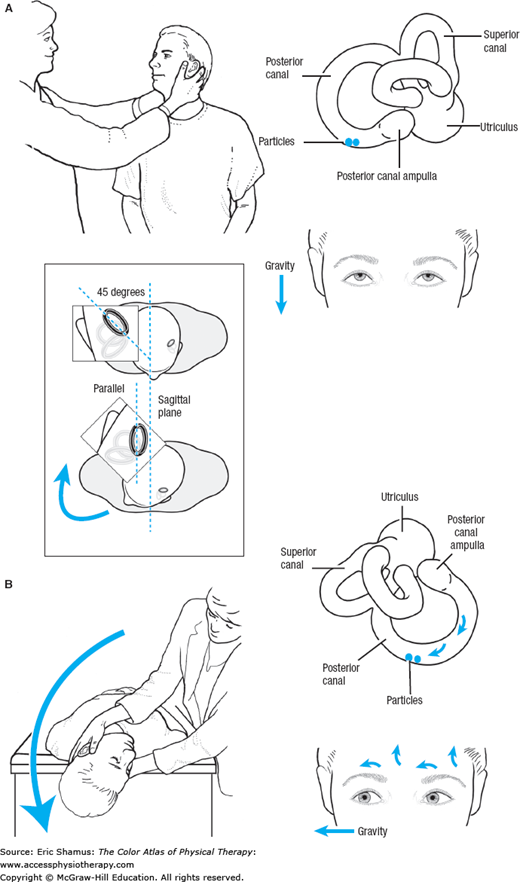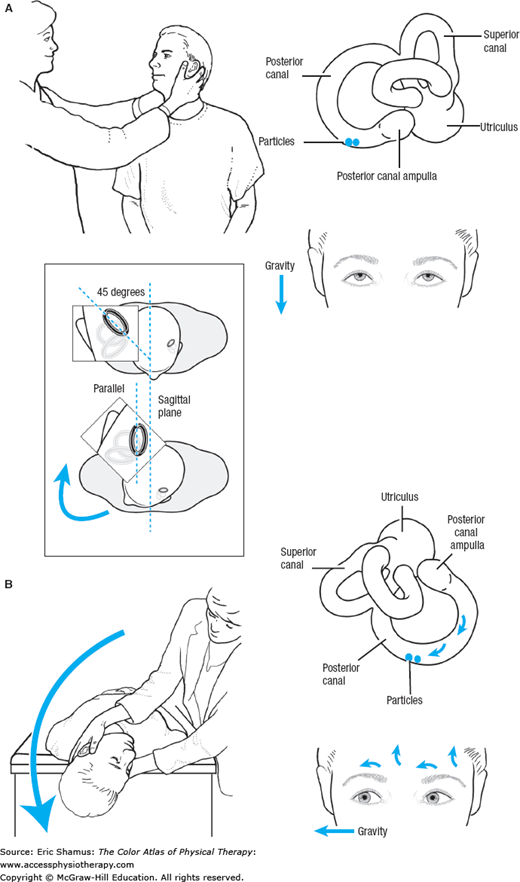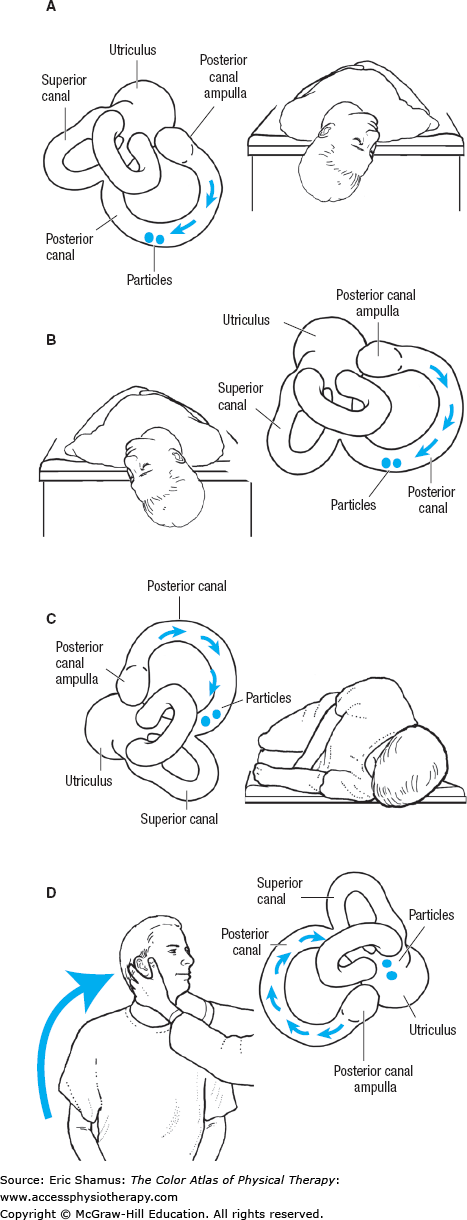BENIGN PAROXYSMAL POSITIONAL VERTIGO


A 63-year-old man presents with a 3-month history of dizziness. His dizziness comes and goes, but usually lasts for about 10 to 15 seconds. He notices that his dizziness is worse when he rolls over in bed or when he gets out of bed. One time, he became very dizzy while trying to reach for an object on a high shelf. He does not have any nausea or vomiting associated with it. When it occurs, it is severe, and he has tried to avoid sleeping on his left side. He does not have any hearing loss or tinnitus. He denies aural pressure and headache. His past medical history is otherwise unremarkable. He is not on any medications.
On physical examination, he is a healthy appearing 63-year-old man. His temperature is 37.1°C (98.8°F); pulse, 64 beats/min; and blood pressure, 124/74 mm Hg. There are no lesions or masses on his face or head. His voice is normal, and his speech is fluent. His facial nerve function is normal. His ear canals and tympanic membranes are normal appearing. His remaining head and neck examination is normal. The cranial nerve examination is normal. The remaining physical examination is normal.”3
Question: What is the most appropriate test and treatment combination if the patient is suspected to be experiencing Benign Paroxysmal Positional Vertigo (BPPV)?
Potential answers:
A. Dix-Hallpike Test & Brandt-Daroff Exercise
B. Bow and Lean Test & Epley Maneuver
C. Roll Test & Cassani Maneuver
D. Dix-Hallpike Test & Epley Maneuver
Answer with rationale: D. Dix-Hallpike Test & Epley Maneuver. The Dix-Hallpike Test/Maneuver is the gold standard assessment for BPPV. The Epley Maneuver is the most commonly used treatment for BPPV, and a self applied version can also be taught to the patient as a home treatment.
For more information see Chapter 259: Benign Paroxysmal Positional Vertigo in The Color Atlas of Physical Therapy.

Create a Free MyAccess Profile
AccessMedicine Network is the place to keep up on new releases for the Access products, get short form didactic content, read up on practice impacting highlights, and watch video featuring authors of your favorite books in medicine. Create a MyAccess profile and follow our contributors to stay informed via email updates.